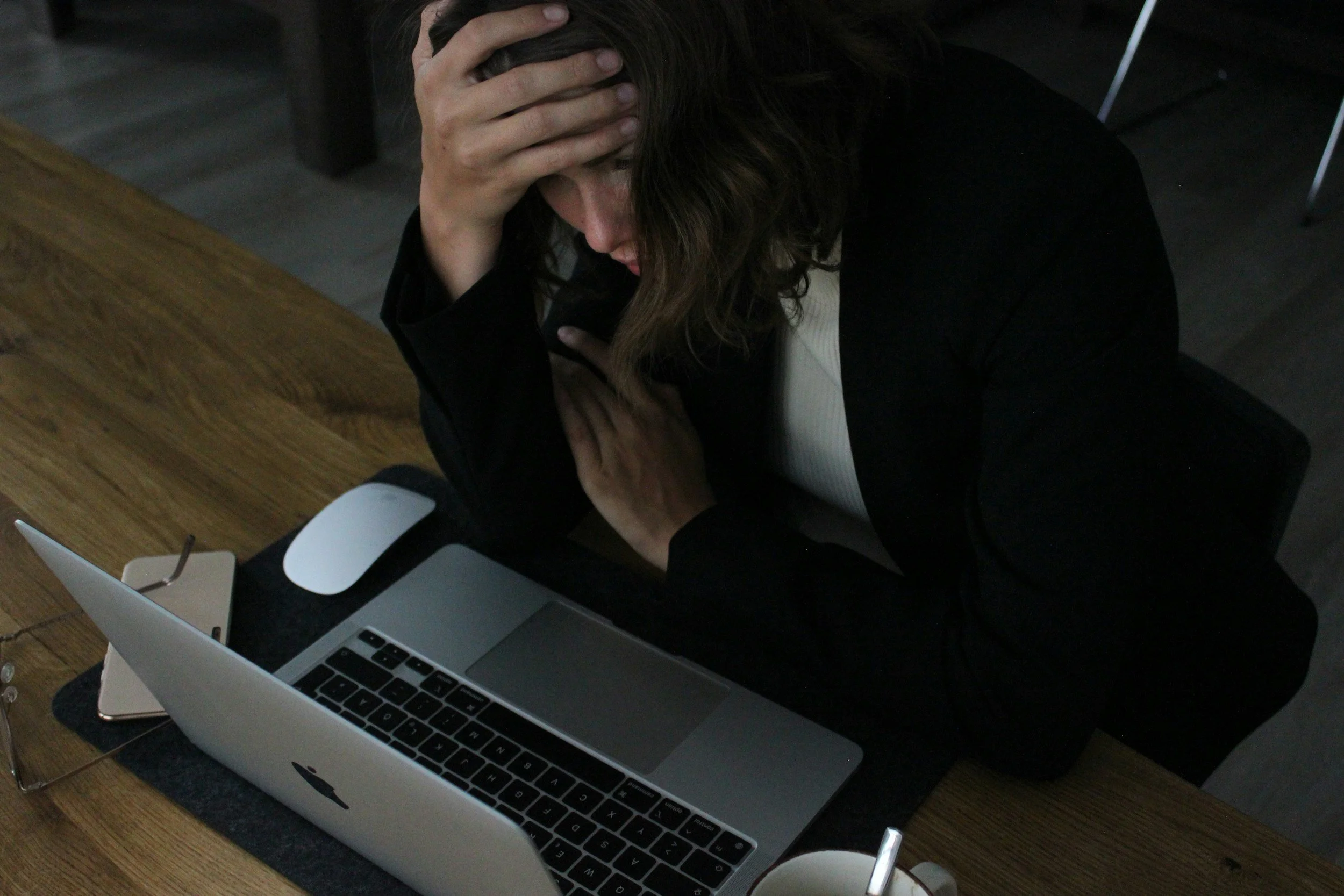Understanding and Overcoming Burnout: A Comprehensive Guide
Are you constantly feeling exhausted, disconnected, and wondering where your passion went?
You might be experiencing burnout – a state of physical, emotional, and mental exhaustion that's becoming increasingly common in our fast-paced world. As a registered nurse with over 25 years of experience and someone who has personally navigated through burnout, I'm here to help you understand this challenge and find your way back to vitality
This is me…on the cusp .of burnout. Physically and mentally exhausted. Barely hanging on.
What Is Burnout?
Burnout isn't just feeling tired after a long week – it's a state of complete physical and emotional depletion. It's what happens when prolonged stress meets overwhelming demands, leaving you feeling empty and unable to meet life's challenges. Think of it as your internal battery not just running low, but completely drained.
Why Does Burnout Happen?
Burnout typically occurs when:
• Chronic workplace stress goes unmanaged
• Work-life boundaries become blurred
• Personal needs are consistently sacrificed for professional demands
• High expectations meet limited resources
• Perfectionism drives you to constantly push beyond your limits
• Support systems are lacking or underutilized
The Warning Signs You Shouldn't Ignore
Physical Signs:
• Constant fatigue that sleep doesn't fix
• Frequent headaches or muscle tension
• Changes in appetite or sleep patterns
• Weakened immune system
Emotional Signs:
• Feeling detached or numb
• Increased cynicism or negativity
• Loss of motivation
• Decreased satisfaction in achievements
Mental Signs:
• Difficulty concentrating
• Brain fog
• Reduced creativity
• Poor decision-making ability
Behavioral Signs:
• Withdrawing from responsibilities
• Procrastinating more than usual
• Using food, alcohol, or other substances to cope
• Isolating from others
Prevention Strategies: Your Burnout Shield
Set Clear Boundaries
• Establish work hours and stick to them
• Create a dedicated workspace
• Learn to say "no" to additional commitments. Think, are there any alternatives to you not doing that? Be honest with yourself…
Today I Practice Energy Management
• Identify your peak performance hours
• Schedule breaks throughout the day. Don’t skip them!
• Build in recovery time between demanding tasks. Block off the time ahead of time in your calendar.
Develop Healthy Rituals & Mean It!
• Start your day with intention
• Include movement in your daily routine
• Prioritize proper nutrition and hydration
Create Support Systems
• Build a network of understanding colleagues
• Maintain connections with friends and family. Don’t neglect this part!!
• Consider working with a wellness coach or mentor.
Recovering from Burnout: Your Path Back to Vitality
If you're already experiencing burnout, here's your recovery roadmap:
1. Acknowledge the Situation
• Accept that burnout is real and valid
• Recognize that seeking help is a sign of strength
• Give yourself permission to prioritize recovery
2. Immediate Relief Strategies
• Take time off if possible
• Delegate non-essential tasks
• Create small pockets of rest throughout your day
3. Build Your Recovery Plan
• Assess your current energy drains
• Identify areas where you need support
• Create a sustainable self-care routine
4. Implement Long-term Changes
• Reassess your priorities and values
• Establish new boundaries
• Design a lifestyle that supports your wellbeing
5. Monitor and Adjust
• Regular check-ins with yourself
• Track your energy levels
• Adjust strategies as needed
The Path Forward
Remember, recovering from burnout is not a sprint – it's a journey of self-discovery and intentional change. As you implement these strategies, be patient with yourself and celebrate small wins along the way. The goal isn't to push through burnout but to transform your relationship with work, rest, and personal wellbeing.
Your Next Steps
If you're feeling overwhelmed by burnout, know that you're not alone. Start with one small change today – whether it's setting a firm boundary, taking a proper lunch break, or scheduling time for self-care. These small steps, when taken consistently, lead to significant transformation.
Remember: You don't have to navigate this journey alone. Sometimes, the most powerful step you can take is reaching out for support from professionals who understand what you're going through and can guide you toward sustainable solutions.
---











